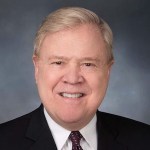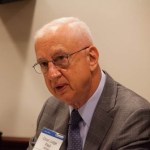Views from the Top: IP Leaders Sound Off on Supreme Court’s Refusal to Wade into Patent Eligibility Debate

To the surprise and sorrow of some, but the relief of others, the Supreme Court earlier today denied certiorari in some key cases on patent eligibility law, putting any hope of further clarity in this realm squarely in the hands of Congress. Many see this as a dereliction of the Court’s duty, while others are just thankful the Court will not cause further harm than it already has.
Commenting on the development, IPWatchdog CEO and Founder Gene Quinn tweeted out his view that this was a “bad day for patent eligibility” and that the denial of Athena ultimately “means medical diagnostics are NOT patentable in America.”
More from Gene tomorrow, but for now here are perspectives from some other IP authorities:

Polsinelli
A great shame, especially Athena, doing harm to important technologies, and an opportunity missed.

Maier & Maier
It appears that for the time being and considering the current composition of the Supreme Court, the Court seems to be satisfied with the Federal Circuit taking the lead in addressing the contours of patent subject matter eligibility. However, by not taking the Athena case the Supreme Court unfortunately has avoided providing needed clarity in the area of personalized medicine based on diagnostics when the Federal Circuit en banc seemed desirous of wanting more guidance. The real question is now where do we go from here? The USPTO tried to clarify section 101, but the Federal Circuit in Cleveland Clinic would not give the 2019 Patent Eligibility Guidance any deference. The Coons-Tillis Subcommittee has tried to craft a suitable bill to fix perceived problems with section 101, but those fine efforts appear to be stalled.

Retired Chief Judge, U.S. Court of Appeals for the Federal Circuit
The Supreme Court created the chaos on patent eligibility in 2010 with Bilski, worsened it in 2012 with Mayo, and still further [muddied it] in 2014 with Alice. Since then, it has declined every one of the dozens of petitions for review (now almost 50), despite desperate pleas from the patent community and, especially in Sequenom and Athena from the judges of the Federal Circuit itself. Today’s dismissal of three more [high-profile] petitions perpetuates the mess the Court imposed almost a decade ago and saps the incentives of most inventors to develop new cures and technology products, because this work requires large investments which are usually dependent on patent protection, now often unavailable here although it is widely available in China, Europe and other major countries. Although eligibility under these cases is not predictable and hence patents are unreliable, the effect on investment flows are entirely predictable: they will shift to countries offering wide and clear eligibility. Our global competitiveness and even national security suffer, for the very technologies most undermined by the Court’s cases are the ones of the immediate future, including Artificial Intelligence, Quantum Computing, 5G telecommunications, autonomous vehicles, genetic medicine, immune-therapy and many more. Only Congress can save the country from further harm.

US Inventor, Inc
Big Tech swamped Congress with “patent troll” and “bad patent” lies and then greased those lies with Big Tech Big Bucks. Some in Congress see the lies and try to fix the 101 mess, but Big Tech Big Bucks are a powerful temptation for the weak. Thus, Congress is corrupted, frozen and won’t even stand up to defend the laws they themselves wrote.
The Federal Circuit, with the highest duty of anyone in government to stabilize patent law, has the highest duty to fix the 101 mess. But, instead, the Federal Circuit flagrantly and stubbornly refuses to define what is abstract and what is not. Instead, they conflate the statutory requirements of patentability into the definition of patentable subject matter, thus relegating once coherent jurisprudence to a pile of gibberish and dung. But more often, they just hide their damning illogic under Rule 36, thus normalizing the chaos that is killing our innovation engine. The Federal Circuit’s failure to perform their high duty of stabilizing patent laws exponentially magnifies the failed Alice-Mayo jurisprudence sending it into a new realm of illogic unintended by the very words of the Supreme Court decisions that created the mess. Trial courts are left confused and unsure, so, protected by Rule 36, judges find 68% of challenged patents invalid as abstract ideas.
USPTO Director Iancu issued well-reasoned 101 guidance in an attempt to thwart the worst of 101’s destruction. But the Federal Circuit, apparently thinking they are coequal with themselves alone, arrogantly informed the USPTO and all the rest of us that it just does not matter what the USPTO or anyone else thinks. They follow their own jurisprudence no matter how irrational and illogical it is and no matter how damaging it is to American innovation, economic growth and national security. They believe the Supreme Court will not correct them, and it now turns out they are right.
The Supreme Court opened this pandora’s box by rewriting the definition of the word “any” to no longer mean “any” under any known definition, yet even the self-proclaimed textualists sit on their hands and deny every 101 case. For very good reason and in the interest of the United States, the time has come to abolish the Federal Circuit so that patent law can once again be stabilized.

Antonin Scalia Law School, George Mason University
I am heartened that the U.S. Supreme Court did not grant cert today in the patent eligibility cases. It let stand the important decisions in Berkheimer and Vanda, in which the Federal Circuit has begun to exercise its appropriate discretion within the Alice-Mayo framework to set limits on the boundless and willy-nilly decision-making that has been destroying legitimate patented innovations. But I am also relieved it did not grant cert in Athena Diagnostics. The Supreme Court created this crisis with its four section 101 decisions—what I have called “the Four Horseman . . . [that] have cut through the innovation industries”—that culminated in the Alice-Mayo framework in 2014. Since then, the Court has now denied approximately 50 cert petitions that have asked it to reconsider its new patent eligibility inquiry in the Alice-Mayo framework. Seven of the nine Justices that unanimously decided Alice are still on the Court. They evidently think that nothing is wrong with either the Alice-Mayo framework or what it has done to the innovation industries—the legal uncertainty, the extensive invalidations of patents on legitimate innovations, and the loss of the U.S. comparative advantage in promoting innovation over China and Europe, as I and Kevin Madigan recently detailed here on IPWatchdog. Thus, the safe bet is that, if the Court grants cert in a section 101 case, even if it thought it was fixing the legal, policy, and economic problems, it would likely only make things worse. Thankfully, we don’t have to risk this bet with the denial of the cert petitions today.
Today’s denial of the cert petitions is a strong signal to both the Federal Circuit and to Congress to act. The Federal Circuit should exercise its legitimate discretion within the broadly framed Alice-Mayo inquiry and address the substantive and procedural failings in this key area of law, as it did in Berkheimer and Vanda. But Congress should also act. Congress should fix this problem once and for all by reforming section 101—abrogating the Alice-Mayo framework and reasserting the primacy of the statutory text that it enacted into law since 1790. Congress has acted before in abrogating key Court decisions in patent law negatively impacting the innovation industries, such as when it enacted Section 103 in 1952, and it should do it again. In fact, Congress should follow the example of Section 103 in both form and substance, as I recently detailed in a white paper released by the Heritage Foundation.

Irena Royzman
Kramer Levin
This is a case where a medical innovation was taken out of the realm of patent eligibility, although all the judges of the Federal Circuit agreed that medical diagnostics, such as those at issue in Athena, should be patent eligible under section 101.
Athena offered an opportunity to the Supreme Court to clarify what is patent eligible subject matter and to instruct courts to consider the invention as a whole rather than separating the discovery of a biological phenomenon from the steps that apply it to diagnose a disease, as courts do now. Without clarification in the law, medical diagnostics have no future and life-saving inventions will not be developed. This is bad for the health of Americans and bad for our economy.

IBM
The Supreme Court has been consistent in refusing to hear additional cases relating to patent eligibility. As a result, the current state of patent eligibility will remain for the foreseeable future. The state of chaos, in which electric vehicle charging stations and garage door openers are somehow determined to be abstract and therefore patent ineligible, will continue to be a drag on innovation. That SCOTUS has denied cert in all of the patent eligibility cases means Congress must act now to reform patent eligibility.

Unified Patents Inc.
As a caveat, Unified takes no official position on 101. My personal opinion is that the amicus support, solicitor’s briefs in Berkheimer and Vanda, and the lobbying, Congressional, judicial, and administrative action surrounding 101 was at an apex such as we won’t see again for some time. It’s hard to imagine more pressure being applied to the High Court to take up 101. (Also, my prediction was wrong—mea culpa.) I think this categorical denial of all three reverts attention back to Congress and increases pressure on decision makers and policy heads to check their egos, roll up their sleeves, and learn to compromise if there is going to be a real chance of a legislative change to 101. My personal hope is that the denial here spurs supporters to be realistic about the level of compromise needed to enact any Congressional bill, and that renewed discussions after the Presidential election in 2021 present meaningful change that can maintain a broad base of support.
On the denial of cert in Regents of U. of Minnesota, it seems the sovereign immunity gambit championed by Shore Chan DePumpo, LLP in the St Regis case is now well and truly dead, both for tribal and state immunity. To paraphrase Chief Justice Roberts, it seems users of the patent system must take the bitter with the sweet.
This article was updated on January 13 at 6:40 PM EST to add Manny Schecter’s comment.


